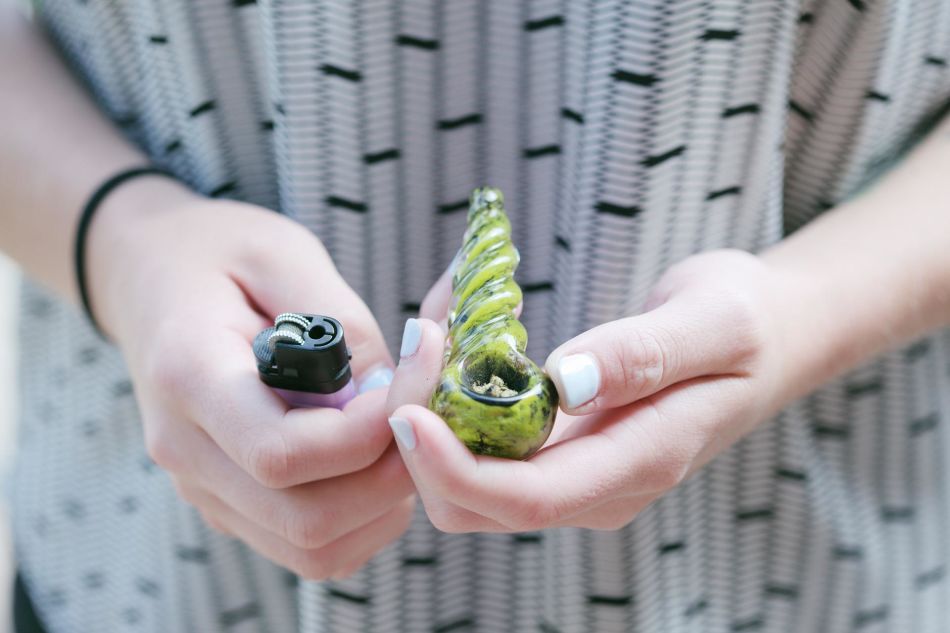Proponents Should Not Overlook Legitimate Concerns About Cannabis (Mis)use
Gary Moore | Moore Lowdown

image by: Sharon McCutcheon
It's a new day for marijuana, with mounting evidence about the potential medicinal benefits and a general public that's moving past "reefer madness" sensationalism about potential harms.
"Those who are accustomed to habitual use of the drug are said eventually to develop a delirious rage after its administration during which they are temporarily, at least, irresponsible and prone to commit violent crimes. The prolonged use of this narcotic is said to produce mental deterioration."
This quote from a brochure put out by the Federal Bureau of Narcotics (the precursor to today's Drug Enforcement Administration, or DEA) in the middle of the 20th century is indicative of the baseless, erroneous propaganda that the United States government has employed to mislead the American public regarding the dangers of cannabis. It's a bias so deep-seated that even today, in the face of an ever-growing mountain of scientific evidence about marijuana's medicinal and therapeutic value, the federal government continues to ignore the likes of the American Medical Association, the American College of Physicians, the New England Journal of Medicine, the Lancet, and the American Cancer Society by maintaining its classification of cannabis as a Schedule I drug, claiming that it "has a high potential for abuse" with "no currently accepted medical use in treatment."
In light of this continuing perpetuation of bogus information about a substance that is (as was famously pointed out by one of the DEA's own administrative law judges) less toxic than potatoes, these days it's tempting to lump all negative cannabis claims into the pile of "reefer madness" alarmism. But for all its benefits and relative benignity, cannabis is not without potential dangers.
The latest such finding is presented in The Lancet Psychiatry, a top-tier journal known to present medical finding sans political slant. Consistent with previous, similarly unbiased findings that cannabis use may increase the incidence of schizophrenia and other psychotic syndromes in persons genetically predisposed to such conditions, the authors of the recent five-year study (the results of which were published last month) found that "Daily cannabis use was associated with increased odds of psychotic disorder compared with never users [...], increasing to nearly five-times increased odds for daily use of high-potency types of cannabis."
With the trend toward legalization sweeping through individual U.S. states, the recent study is particularly compelling, as cannabis concentrates, along with higher potency strains of marijuana in its natural form, are increasingly easy to obtain. (As one recent survey notes, the average THC content of cannabis plants has doubled over the last decade.) "[O]ur findings confirm previous evidence of the harmful effect on mental health of daily use of cannabis, especially of high-potency types," write the authors. "Importantly, they indicate for the first time how cannabis use affects the incidence of psychotic disorder. Therefore, it is of public health importance to acknowledge alongside the potential medicinal properties of some cannabis constituents the potential adverse effects that are associated with daily cannabis use, especially of high-potency varieties."
This finding is not the only potential danger highlighted by unbiased scientific sources. For example, there is a body of research suggesting that chronic cannabis use during one's adolescence, when the brain is still developing in physical size, may be linked to, as Claudia Wallis writes in Scientific American, "altered connectivity between the hemispheres, inefficient cognitive processing in adolescent users, and a smaller amygdala and hippocampus—structures involved in emotional regulation and memory, respectively." This may be connected to a finding published in PNAS (the Proceedings of the National Academy of Sciences of the United States of American) that regular cannabis use during adolescence may cost the user 6 IQ points by adulthood.
I have a personal reason to write about the recent finding linking heavy cannabis use to psychotic disorders. Since the 1990s⎯even before I myself was a cannabis user⎯marijuana legalization was one of my pet political issues, framing as it does the worst of government dishonesty, overreaching, and hypocrisy. While cigarettes have been legal big business, my legislators have not only sent to jail adults who chose to put a relatively harmless substances into their own bodies, but even denied medicine to the sick. I have worked extensively over the last quarter-century to change to status quo, becoming only firmer in my convictions about the benefits and relative safety of cannabis as my knowledge and experience has grown; and I will continue to push for complete legalization at the federal level.
But I believe that over the last few years I have personally known at least one person who has suffered from psychosis brought on by his excessive, daily use of high-potency marijuana and cannabis concentrates. Over time he became increasingly delusional, finally needing to go into treatment and ultimately needing to uproot his entire life in the effort to regain his mental equilibrium.
Although I would rather not believe that such a generally innocuous and even beneficial substance could also have a casualty rate, we must always consider the best available evidence concerning our practices. While the facts make clear how wrong the federal government has been and is to criminalize cannabis, the facts also tell us that, like most any substance, cannabis can be misused. Honest discussion and education are the things that can help us minimize this misuse as we continue to make progress toward total marijuana legalization.

Introducing Stitches!
Your Path to Meaningful Connections in the World of Health and Medicine
Connect, Collaborate, and Engage!
Coming Soon - Stitches, the innovative chat app from the creators of HWN. Join meaningful conversations on health and medical topics. Share text, images, and videos seamlessly. Connect directly within HWN's topic pages and articles.
















